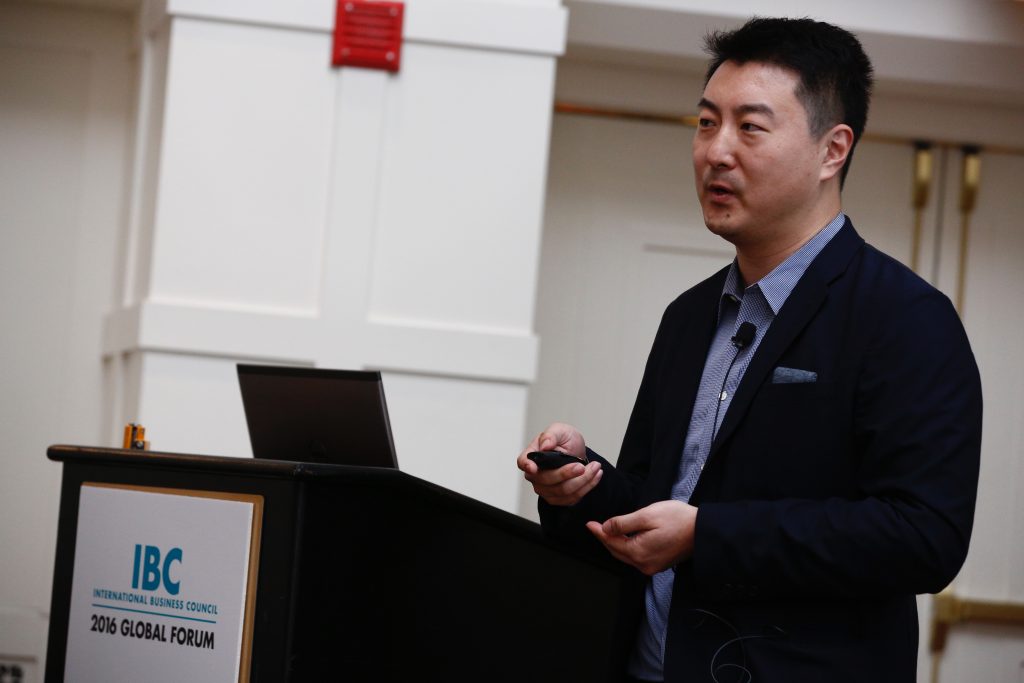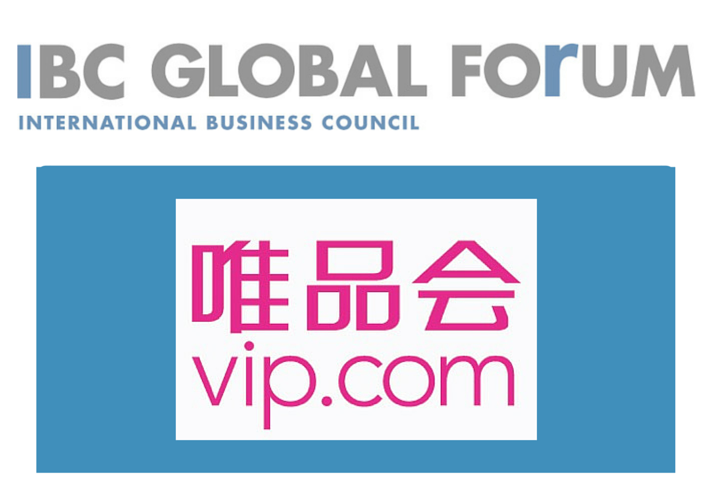On Friday morning at the IBC Global Forum, Tony Shan presented details on selling directly to the 180 million registered users of VIP.com, a Chinese online retailer. Tony is responsible for business development and merchandising for VIP.com within the Americas with offices in New York.

In December 2008, VIP.com introduced its B2C online sales model to the Chinese consumer market, which has an estimated value of $600 billion. With an increasing percentage of consumer goods sold online, now at 12.6 percent in China, home and housewares suppliers should consider using this platform to sell in this key market.
Mr. Shan began by outlining the e-commerce landscape. With China’s 1.35 billion population, 50% are internet users and two-thirds of these users shop online, yielding $590 billion in annual purchasing, representing more revenue than total sales of some 100 retail groups. In some market segments, ecommerce is significant. For example, for every 100 pairs of shoes sold in China, 46 are sold online.
Lifestyle Changes Drive Growth
Ecommerce offers:
- Price advantages
- More access to brand than physical stores especially in lower tier cities
- Better overall experience with personalized customer care and after sales service
Mobile shopping is growing: 3G/4G coverage increases opportunities for consumers to use mobile shopping for convenient, anytime shopping. China’s young shoppers, primarily female, also are heavy users of social media. They post and share product reviews and photos of the goods at a rate more than double that of the U.S. and often pay online. In 2015, roughly 50% of overall ecommerce was online sales. In China, 55% of internet users made a mobile payment, vs. roughly 25% in the U. S.
Mr. Shan sketched out trade models in China and compared advantages of registering and importing directly into China and allowing instore sales combined with ecommerce. For General Trade, Chinese labeling and packaging is required, along with import duties and VAT. Licenses are required and inventory must be held in China. This method has benefits: a supplier controls the distribution, manages pricing and can leverage online and offline sales to expand each.
In cross-border operation, suppliers bring in products directly for ecommerce only. This method allows original packaging, is subject to lower taxes rates and no testing is necessary. Barriers to entry are lower than in traditional trade. The rapidly changing landscape allows cross-border trade unique advantages to test the market. Supervised by Chinese customs, the process is more transparent to reduce fake products. Business licenses and product selling licenses are not required, inventory management and payment control are smoother.

The Benefits of Cross-Border E-Commerce
- More brands available than otherwise in the country
- Wider range of authentic and high quality products
- Original branded products from country of origin
Key players in the space are the market place sites like Tmall, which operates similar to Amazon, general B2C like JD.com, which started as a small electronics platform geared primarily for male shoppers, and event-based sales such as VIP.com. VIP.com offers core everyday products, with set prices that don’t change, unlike sites that are focused on off-price or discount goods.
Opportunities for the Home and Housewares Categories
- Consumer spending is rising by an annual average of 8.5% as millions of households move to middle class income bracket
- Aspirational consumer purchases move from basic food items to labor-saving devices
- Household goods such as kitchen appliances and personal care items see excellent volume turns
- Consumers value product design, functions and features
- Price sensitivity level is low
- Medium to high-end products are becoming mainstay
Shopping Behavior
In search based shopping, consumers need to understand brands and product benefits. They look to influencers for lesser known brands or niche products. They rely on endorsers to convey the brand story and explain product utility at POS.
VIP International Household Category Penetration
Monthly revenue of $3 million USD, primarily with 47% of revenue in personal care appliances and 28% in kitchen appliances. VIP.com’s purchasers are 80% female and 61% in the 26-40 age range.
VIP.com has a strong presence across China, especially in tier 2 and tier 3 cities, where there is little traditional retail.
VIP.com background
- Industry leader in apparel, shoes, bags, cosmetics
- Household products account for about 12% of total sales
- 180 million users, 13 million active daily unique visitors
- Of 100 customers, 80 come back. Repeat purchasers drive 90% of sales
Marketing Channels to Reach Customers
In addition to standard marketing channels, VIP.com employs celebrity endorsements, personalized recommendations based on past purchasing behavior and user preferences, strong partnerships with magazines, and TV ads to drive brand exposure. Successful offline campaigns included outfitting five subway stations as country pavilions to advertise VIP.com brands.
VIP.com Seeks Long Term Partnerships
VIP.com aims to develop fruitful partnerships with brand partners and assist overseas brands to be successful in the Chinese market. VIP. com went live in December 2008 and in March 2012 was listed on the New York Stock Exchange. From 2011 to 2015, VIP.com enjoyed triple digit growth in revenues and orders. It sells a large pool of global brands. VIP.com maintains 14 offices throughout Asia, Australia, Europe and the U.S.
VIP.com offers a suite of services from pre-sale to after sale support, to guarantee an effortless partnership. Pre-sale services include SKU selection, image preparation, pricing and delivery to a China Free Trade Zone port. During the sales period, VIP.com manages the sales event, promotion and order management. Post-sale, VIP.com handles customs clearance, deliveries, customer service, and returns.
Types of Companies that Do Well with VIP.com
- Products with utility and function
- Capacity to refill orders on a regular basis
- Ability to offer editorials, lifestyle images, detailed descriptions
- Ability to offer special SKUs or coop marketing support
- Joint effort to brand build in China in a strategic partnership
How VIP.com is Unique
- No set up fee required
- Warehousing in China not needed
- Product testing in China not required for cross border sales
- No relabeling needed
- No operations or customer service team needed in China
Mr. Shan closed by outlining key business information such as VIP.com’s category focus and logistics—CIF China to bonded warehouse or FOB US to their warehouses in New York, Chicago and Los Angeles—payment structure and documents needed.
For further information, contact tony.shan@vipshop.com in New York 646-475-8485.
![]()



